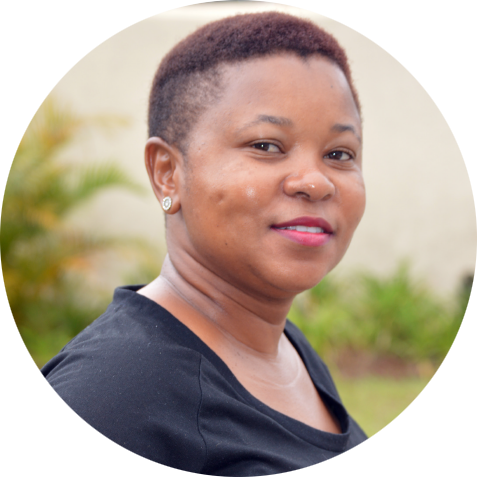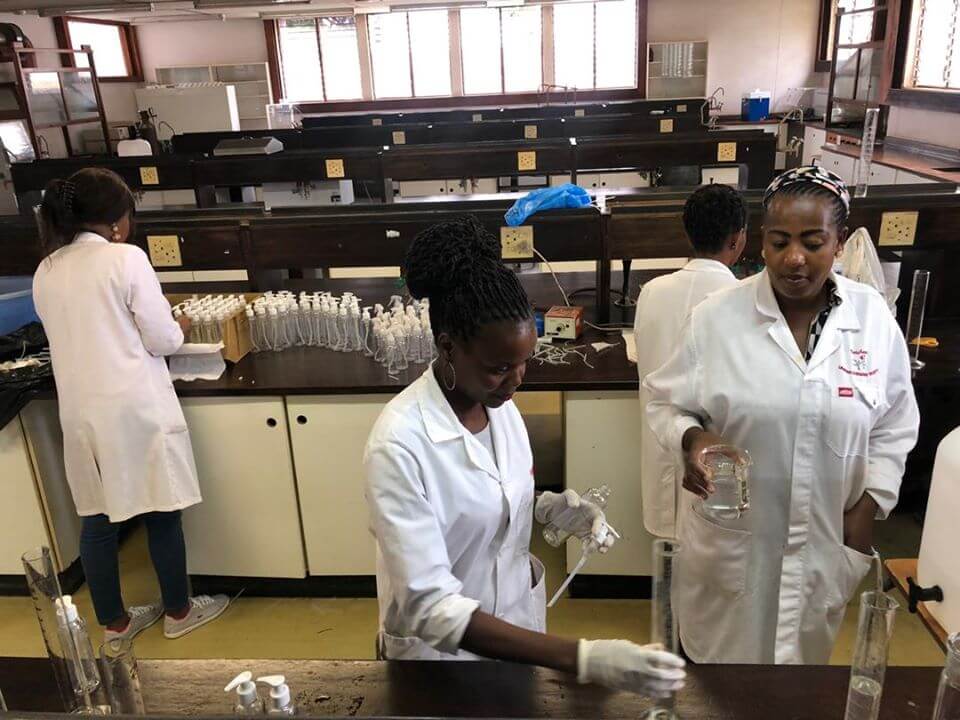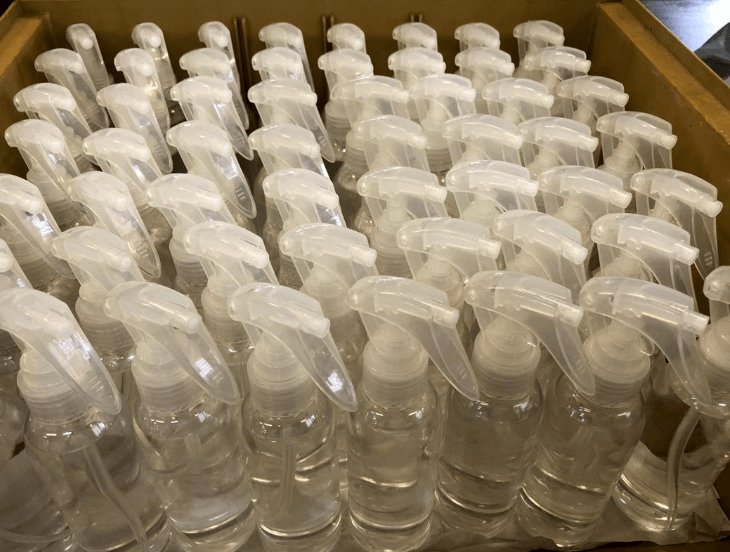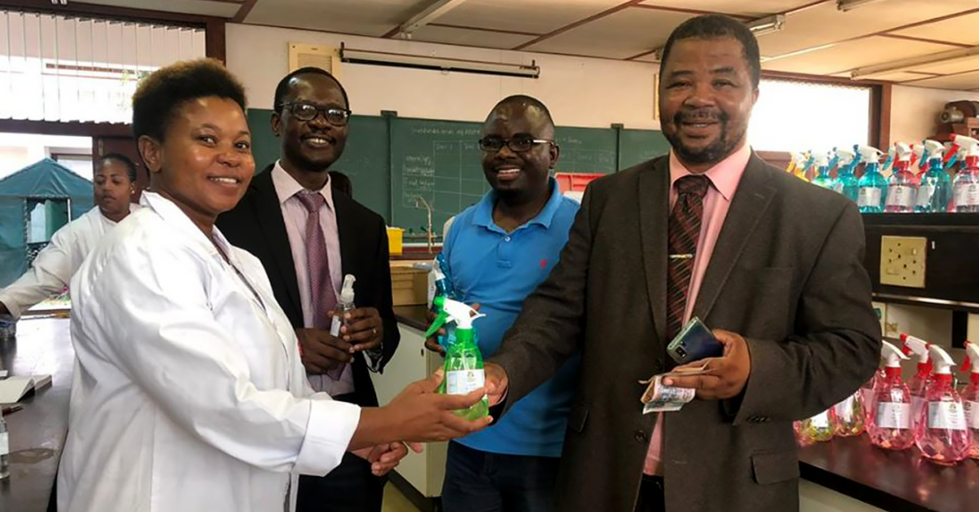Pictured above: Dr. Thabile Ndlovu (left) presents hand sanitizer produced at the University of Eswatini to Vice-Chancellor Prof. Justice Thwala. (Photo safely taken before social distancing was implemented.)
The first case of COVID-19 was confirmed on March 14 in Eswatini, a small, landlocked country in southern Africa formerly known as Swaziland.
What followed is familiar: people raced to buy essentials like hand sanitizer, and stocks were quickly depleted.

Dr. Thabile Ndlovu, Head of the Department of Chemistry at the University of Eswatini and an Instrumental Access awardee, realized that she could help.
She approached her university leadership with her idea: use their lab infrastructure to mass produce hand sanitizer, and bolster pandemic response in their community.
With the University’s support, Dr. Ndlovu assembled an enthusiastic force of biologists, chemists, and pharmacists from across the Faculty of Science.
Thanks to the shipment of Instrumental Access equipment that arrived on campus just a month ago, Dr. Ndlovu and team had the lab instruments they needed to undertake this important project.

Dr. Ndlovu’s team followed the WHO’s recommended formulation to mass produce hand sanitizer. The result: an estimated 100 liters (around 26 gallons)!

“The response has been overwhelming and the nation has supported us,” Dr. Ndlovu says.
However, raw materials needed to produce more hand sanitizer are becoming scarce–including ethanol, a key ingredient. Prices are soaring as demand increases.
“Now is a time when people have to come together and fight this, as well as protect each other,” says Dr. Ndlovu. “I feel that as scientists, this is the least we can do.”

“Scientists work hand in hand with healthcare systems to safeguard public health, and now that connection is more important than ever,” says Melissa P. Wu, PhD, CEO of Seeding Labs.
Seeding Labs’ Instrumental Access program provides scientists like Dr. Ndlovu with the tools they need to address critical scientific challenges, including emerging threats like COVID-19.
One of the many benefits to strengthening scientific capacity worldwide is enabling local, rapid responses to both short- and long-term challenges. Now more than ever, the world can’t afford to let any scientific talent go to waste.
We are proud to learn of scientists at other Instrumental Access awardee universities joining in the COVID-19 pandemic response by producing hand sanitizer for their communities:
- From Kwame Nkrumah University of Science & Technology in Kumasi, Ghana: KNUST Produces Affordable Hand Sanitizer to Help Prevent the Spread of COVID-19 Pandemic
- From the University of Health and Allied Sciences in Ho, Ghana: Twitter update










